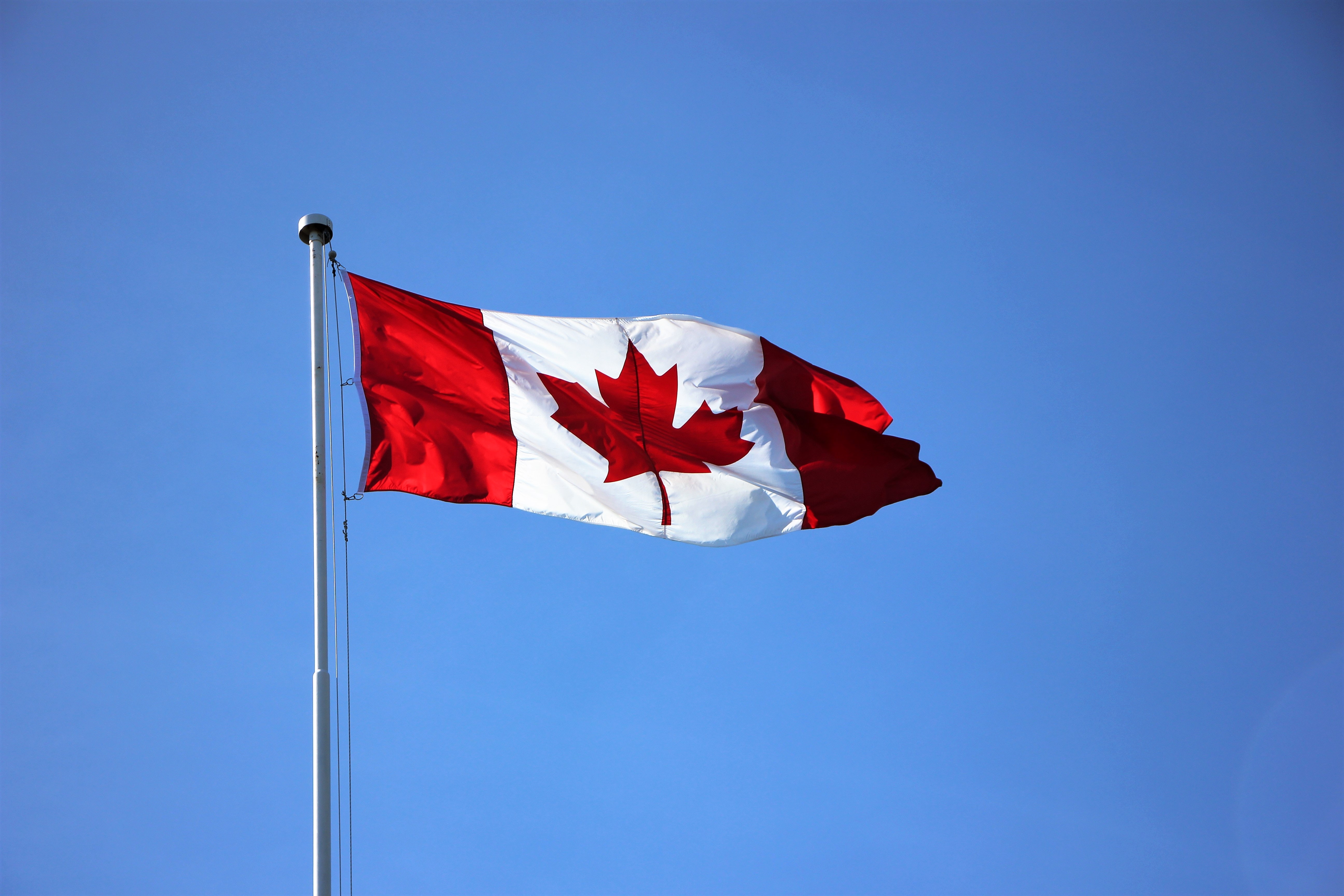How to “survive” in Canada: Immigration Part III
(You may listen to its audio by clicking on the Play arrow below.)

Mr. Pierre Poilievre. Hello!
On August 1st the Conservative leader Pierre Poilievre rang the alarm bell regarding the proliferation of YouTube videos that seem to discourage new immigrants from coming into Canada. In Poilievre’s words: “There’s actually an internet phenomenon now, where immigrants are warning potential newcomers at how unaffordable and dangerous life is in Canada.”
Some social media observers and immigration “experts” disagree. Truth is, according to them, the increasing number of videos praising Canada to high heavens to encourage more immigrants are equally popping up on YouTube. And, they added, this is a good sign. It is a blessing to those who are contemplating on betting their future in Canada. They can make their own “informed decision” before choosing Canada as their new home destination.
I disagree, for a different reason
I, too, disagree with Mr. Poilievre’s assessment. But with a twist. I first heard of Mr. Poilievre a year after he was elected a member of Parliament in 2004. He became the youngest member of Parliament. And the image that imprinted in my consciousness is that of a man – an impeccable blue suit and expensive pair of glasses – more commonly associated with Wall Street, or Bay Street (Canada’s version). And his “attack-dog” style of politics gave me an early hint that this clean-cut young politician would someday have a consequential future in Canadian politics.
Until sometime in July of this year. After so many years in his political life, he had a momentous make-over: no more expensive-looking specs, and the crisp-looking suit is supplemented with a pair of bootleg blue jeans. When called about this very drastic change, Mr. Poilievre defensively explained, “Whether or not I wear glasses, I have the best vision for the country.” Very cute statement from a true-blooded federal politician. And to enhance his image as an ordinary family man, he added that his wife, Anaida, thinks he “looks better without glasses so I have to keep her happy first and foremost.”
Mr. Poilievre married Anaida back in 2017, and she just realized in July of 2023 he did not look better with the glasses.
And many are noticing, too, that even his tone of voice has become milder and soothing. The attack-dog has become a cute puppy.
It is obviously suspected that behind this head-turning make-over is the fact that the Conservatives are not doing well in recent by-elections in ridings that used to be dominated by the party. Also, Mr. Poilievre is gearing up to slug it out with Mr. Trudeau in the next federal election.

Why Mr. Poilievre?
But what has Mr. Poilievre got to do with this article about immigration into Canada?
It is this: When a federal politician aiming to be the next Prime Minister of Canada has to abruptly change his/her appearance to look like an average and struggling Canadian, we should take that as an omen.
It is not because Mr. Poilievre, or Mr. Trudeau, or any politician for that matter, has great love for the great number of Canadians who are being walloped by rising cost of decent living in Canada. Rather, it is all about votes. I say this is an omen, because Canadian politicians, like Mr. Poilievre, knows the bulk of the future votes are not coming from those on Bay Street.
So, words coming out of the mouth of politicians like Mr. Poilievre is better taken with a grain of …pepper. No wonder prospective immigrants would rather rely on YouTube videos posted by ordinary and average Canadians, than listen to its politicians or scouring on government websites that are very confusing at times.
So, here is a simple hint. If we want to know where the lives of majority of Canadians are heading, we just need to observe how our politicians change their appearance.
The YouTubers
The YouTuber that Mr. Poilievre seems to be referring to is the husband-and-wife team based in Calgary (Alberta). In their December video entitled “Should you move to Canada in 2023?”, the husband says, “If you think life in Canada would be glamorous from the very beginning, you would be making tons of money and buying multiple properties within three to five years as you see on YouTube, then that’s not the reality for majority of the immigrants.” And the wife adds that prospective newcomers must be “ready to work two jobs and be reliant on different income streams to survive. That they should reconsider their decision to immigrate to Canada if they are already making a good living” in their home country.
What about me?
And what do I say? What is my experience about life in Canada?
The husband-and-wife YouTuber came to Canada in 2019, and they seem to have become an expert about life in Canada. This means they are really very serious about their decision to come to this country. They are keen on their observations. And they want to share their real experience with those contemplating on coming to the country.
I have come to know Canada for almost two decades now. Surely, I do have my own story to tell, don’t I?

In the 1st and 2nd parts of this 3-part series on immigration to Canada, I mentioned that it is not correct to start with the question, “Is Canada the better country for me?” Rather, look inward first. Give an honest assessment about yourself. Who are you, in terms of your personality and preference? What do you have – degrees, skills, specialty, hobbies, etc. It is then when you do diligent research about Canada. Do the two of you match each other?
Why is this process very important? It is because, as I also mentioned, Canada is experienced differently by different new immigrants. No wonder, some are much happier in their lives being in Canada as newcomers. Others, as some would put it, “We have so much self-respect and value our dignity so much that we decided to leave Canada with a broken heart. And a broken dream.”
NOTE:
It is important to consider not only your short-term well-being here in Canada as a newcomer. Think about the kind of Canada your children and grandchildren are going to inherit. And your own distant future during retirement.
So, here is my own experience of Canada. And I want to limit the scope of topics here. I try to choose the things that are commonly thought as unique in Canada. The areas where most immigrants are excited about when thinking of Canada.
Healthcare System
Yes, Canada is very popular when it comes to universal healthcare accessibility. Even the Americans are constantly banging their heads asking their government why they cannot imitate the Canadian system. The costs of healthcare in the US are obscenely scandalous compared to that of Canada’s, many would say. Many Americans humiliate themselves by crossing the border into Canada to procure the much-affordable medication for diabetes, for example.
However, is Canada’s universal healthcare really the best? Where can we find the authoritative answer? Healthcare is a very complex matter to understand, and it has so many factors to consider – healthcare infrastructure, healthcare professionals, per capita of a country, health regulators, locale, etc.
The CEOWorld Magazine has issued its latest ranking for Best Healthcare in the World 2023, and as a Canadian myself, my heart sank. Here are the top 10 countries:
- South Korea
- Taiwan
- Denmark
- Austria
- Japan
- Australia
- France
- Spain
- Belgium
- United Kingdom
I am not in a position to question this ranking. All I can say is what has been happening in Canada with its much-touted universal healthcare.
Worrisome trends
There appears to be a shortage of medical practitioners. Or is there? If you are a newcomer, good luck finding your family doctor. And when you do, be aware of the worsening “Wait Times” – this is the period between a referral from your general practitioner (family physician) and the receipt of treatment from a specialist.
The Fraser Institute has been monitoring this for almost three decades. And although there are variations to take into account depending on the province or territory, in general here is the trend: in the year 2022 the wait time is 27.4 weeks (that is almost 7 months). This has increased from the 25.6 weeks (around 6 months) in year 2021. In the year 1993, the wait time was just 9.3 weeks (a little over 2 months) – a 195% jump.
Yes, obviously, this trend has been caused by the increase in new immigrants, plus the aging population that needs more medical care.
No, it is not because of shortage of healthcare professionals. It is largely caused by the convoluted policies and messy bureaucracy on the provincial level.
And, by the way, universal healthcare system in Canada is not totally free. It is coming from tax-payers money. Also, contrary to misconceptions, not all healthcare treatments are without cost, either. And it varies between provinces and territories.
Question: Are the influx of economic immigrants able to replenish and sustain the healthcare cost through their taxes? It depends on the kinds of decent-paying jobs they can find in Canada. Lower wages mean lower taxes. Lower taxes mean …
Government financial programs and benefits
Newcomers are ecstatic to discover that the federal and provincial (territory) governments are giving free money to families. This comes in many forms, most especially the Canada Child Benefit (CCB).
However, no, they are not actually free, either. And it must be noted that any government programs and benefits are not assured to be permanent. They can be withdrawn anytime. And if anyone is paying attention, the federal government is now panicking over its monstrous deficit. If no drastic measures are put in place, and if the “more immigrants” strategy does not come into fruition, the next generation of Canadians are in deep trouble.
How much trouble and desperation? The newly appointed Treasury Board President Anita Anand has just sent a letter to all federal cabinet ministers to find $15.4 billion in spending cuts, with an October 2, 2023, deadline. What spending cuts would mean for Canadians, remain to be seen.

The merit-based system in job opportunities?
This is more of a myth in Canada. “Who you know, not what you know” is very prevalent in the current trend. And I have witnessed this in many instances.
I know of a guy who had a job at a big laboratory waiting for him, long before his visa got approved. A day after he landed in Toronto, he reported for work. No interview was needed. His mother back in his home country was friends with the VP of the laboratory company. On the second week his colleagues at work were shocked to know the guy was promoted to a position that required a provincial license and Canadian experience. Both of which he did not have. How did it happen? The VP knew some bigwigs inside the provincial “college” – a body that regulates and issues licenses.
Another example is when I met two fellows who had been in Canada for two years. Although “Canadian experience” requirement has been discouraged in job applications, it is still being practiced among employers. These two guys had no choice but to go back to school to receive a semblance of Canadian education. I worked with these two when I got invited by the school to do a workshop on creating resume and cover letter tailored for Canadian jobs.
Cases that are becoming more too common
It is where I found out that one was one of the best brain surgeons back in Iran, and the other one was a multi-awarded cardiologist in Iraq. Since they arrived in Canada one drove a taxi for a living, and the other worked as a night-shift security guard at one of the warehouses in the industrial area in Toronto. A week after the workshop they were both happy to break the news to me that they finally landed a job closer to their specialty. That job was drawing blood at one of the blood collection centers in Toronto.
So be ready for the possibility that you may never land on your dream job that you see online. Or even on government websites. Make sure you have extra “ropes” with you. Patience.
Public service
Canada has a bloated bureaucracy. As of 2023 there are 357,247 employed in the public service, on federal level alone. And this is supposed to be good news for Canadians. But in reality, this is where Canada becomes a puzzle, when it comes to the quality of public service.
For example, if you need to contact the CRA (tax agency) – which almost every Canadian has to since the CRA is very much a part of every tax-payer’s life – you need to gather all the patience that you have. Be it through their online portal or through the phone, the wait time to get hold of a human agent would average 2 hours!
A glimmer of hope? For the 2023 federal budget, the following “investments” have been approved to make public services better:
$1.02 billion for Service Canada to accelerate claims processing and reduce backlogs.
$400 million for the CRA to reduce call center wait times.
$574 million for Service Canada to reduce call wait times.
$137 million for Canada Border Services Agency to enable faster time in processing at the border (point of entry).
Hiring more staff at immigration to catch up with backlogs in application.
And the list goes on. Fingers crossed things will really improve soon.
Other issues
There are other concerns of Canadians that are widely covered by mainstream media as well as social media platforms. These include the housing availability and affordability crisis, most especially in big cities. And this will expectedly get worse, especially with the continuing influx of new immigrants and international students and temporary workers. All of whom need to have a decent roof over their heads.
Many experts, including the banking sector, are calling for a slowdown in immigration due to the housing crisis.
Influx of all kinds of immigrants
In 2022 there were 437,120 new immigrants who came into Canada. It is expected that in 2023 Canada is to welcome 447,055 more. In 2024, another 451,000. And in 2025, another 500,000 more.
Where to house these newcomers, no one has the answer. Provinces are asking the federal to help, but Ottawa sends back the plea that it is the provinces’ job to fix the problem.
Solution to housing crisis?
When asked about the suggestion that those huge numbers of immigrants should be re-examined, the newly appointed Immigration Minister Mr. Marc Miller has offered a rebuttal that made me sad, wondering how out of touch the current politicians in Canada are becoming.
“The federal government is making housing more affordable,” the wise minister says, “and bringing in the skilled workers required to build more homes. Without those skilled workers coming from outside Canada, we absolutely cannot build the homes and meet the demand that exists currently today.”
Please no more dumb politicians
Okay, for the sake of pretending his explanation makes some sense, here is my question. When, let’s say, 100,000 new immigrant carpenters, engineers, plumbers, etc., land in Toronto ready with their rolled-up sleeves to start pounding the ground to build those houses, where are you going to house them? Unless the bright minister has a secret to building a house in a couple of hours. Maybe through Artificial Intelligence (AI)?
Pardon my honest disrespect, but that was the dumbest statement that I have heard from a federal official for this year.
And he may not be alone. Canada is a great country. But it is becoming a country that produces the kind of politicians that we find in countries where some immigrants came from.
But why am I still here in Canada?
I am still here in Canada because I still love this country, despite its many mostly-man-made shortcomings.
I have no problem paying high taxes, because this means I am earning and my taxes go into impressive infrastructures, like highways, roadways, public parks, etc. And, believe me, Canada is better in this regard than in most parts of the US.
And I am not worried about the anticipated recession, other countries also have that problem. I am not worried about wildfires raging all over Canada, other countries have the same experience.
Soaring inflation and rising costs of living is not unique to Canada, either.
In short, I am happy to be here in Canada because I have long accepted that this country is not perfect. And it is here where I have found my simple happiness and joy. About which I reserve for future blog posts.
Friendly advice: Please do not put Canada in a pedestal which is over-hyped in some sources. Only for you to cut it down to pieces when your own expectation of mythology does not become a reality when you have arrived here.
How to “survive” in Canada?
Coming into Canada is not about survival. You must be happy to be here. And there are many reasons to be happy here in this country. It all depends on what you are looking for. So, know yourself first, and see if Canada is meant for you. And if you are meant for Canada.
What do you think of this post? Please share your thoughts by clicking on the underlined Let Me Know Your Thoughts below.



